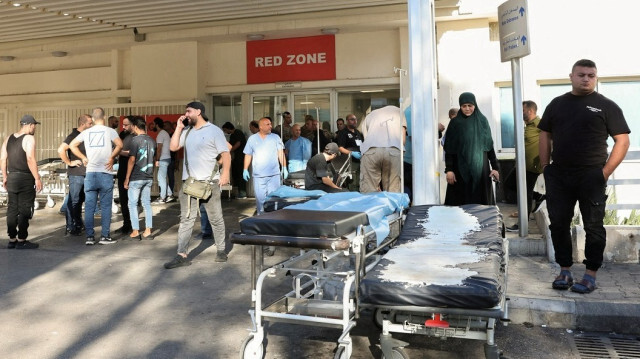
These events have severely disrupted Lebanon's already fragile health system,' says WHO head Ghebreyesus
Officials from the World Health Organization on Thursday praised Lebanon's health system for how it handled two waves of pager blasts that killed 37 people and injured over 3,000 others.
Dr. Mike Ryan, WHO's head of emergency programs, said at a press conference that "I do think the Ministry of Health and Dr Nasser deserve a lot of credit for the way in which an already stretched ministry has been through so many different crises, including the huge exposure recently, the economic crisis, so many things."
Earlier on Thursday, Lebanese Health Minister Firas Al-Abiad said the death toll from two waves of wireless communication device explosions in Lebanon had risen to 37, with thousands injured.
Thousands of pagers exploded in the capital Beirut and several areas across Lebanon on Tuesday, killing 12 people, including two children, and injuring 2,323 others. A second way of device blasts killed 25 people and injured 608 others on Wednesday.
WHO official Ryan said Lebanon has a medical system that is "under huge strain, and the fact that they could stand up to this massive event is a testament to the resilience of health workers and the health system in Lebanon."
Dr. Abdinasir Abubakar, the WHO Representative in Lebanon, said the country's minister of health reported the death of a medical doctor in the two days waves of communication device explosions.
He said work needs to be done to see how the blast "affected the people that have already been wounded, which is over 3,000 people, and also 37 people have died so far."
WHO head Tedros Adhanom Ghebreyesus said, "These events have severely disrupted Lebanon's already fragile health system."
For months, the WHO and its partners have been unwavering in their support for Lebanon, assisting the country in preparing for and responding to mass casualty incidents.
"We have trained over 5,000 health workers to respond to events like this, covering more than two-thirds of the country's hospitals, and we supported the government in establishing a health emergency operation center, which is proving vital in coordinating the response," he said.
Ghebreyesus said the WHO distributed trauma and emergency surgery supplies as supplements in 23 hospitals.




















